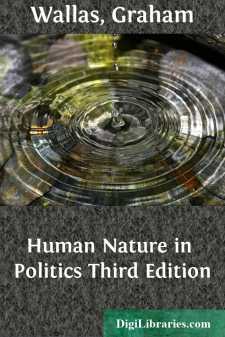Categories
- Antiques & Collectibles 13
- Architecture 36
- Art 48
- Bibles 22
- Biography & Autobiography 816
- Body, Mind & Spirit 145
- Business & Economics 28
- Children's Books 17
- Children's Fiction 14
- Computers 4
- Cooking 94
- Crafts & Hobbies 4
- Drama 346
- Education 58
- Family & Relationships 59
- Fiction 11834
- Foreign Language Study 3
- Games 19
- Gardening 17
- Health & Fitness 34
- History 1378
- House & Home 1
- Humor 147
- Juvenile Fiction 1873
- Juvenile Nonfiction 202
- Language Arts & Disciplines 89
- Law 16
- Literary Collections 686
- Literary Criticism 179
- Mathematics 13
- Medical 41
- Music 40
- Nature 179
- Non-Classifiable 1768
- Performing Arts 7
- Periodicals 1453
- Philosophy 66
- Photography 2
- Poetry 897
- Political Science 203
- Psychology 45
- Reference 154
- Religion 516
- Science 126
- Self-Help 85
- Social Science 82
- Sports & Recreation 34
- Study Aids 3
- Technology & Engineering 59
- Transportation 23
- Travel 463
- True Crime 29
Our website is made possible by displaying online advertisements to our visitors.
Please consider supporting us by disabling your ad blocker.
Human Nature in Politics Third Edition
by: Graham Wallas
Description:
Excerpt
CHAPTER I
Whoever sets himself to base his political thinking on a re-examination of the working of human nature, must begin by trying to overcome his own tendency to exaggerate the intellectuality of mankind.
We are apt to assume that every human action is the result of an intellectual process, by which a man first thinks of some end which he desires, and then calculates the means by which that end can be attained. An investor, for instance, desires good security combined with five per cent interest. He spends an hour in studying with an open mind the price-list of stocks, and finally infers that the purchase of Brewery Debentures will enable him most completely to realise his desire. Given the original desire for good security, his act in purchasing the Debentures appears to be the inevitable result of his inference. The desire for good security itself may further appear to be merely an intellectual inference as to the means of satisfying some more general desire, shared by all mankind, for 'happiness,' our own 'interest,' or the like. The satisfaction of this general desire can then be treated as the supreme 'end' of life, from which all our acts and impulses, great and small, are derived by the same intellectual process as that by which the conclusion is derived from the premises of an argument.
This way of thinking is sometimes called 'common sense.' A good example of its application to politics may be found in a sentence from Macaulay's celebrated attack on the Utilitarian followers of Bentham in the Edinburgh Review of March 1829. This extreme instance of the foundation of politics upon dogmatic psychology is, curiously enough, part of an argument intended to show that 'it is utterly impossible to deduce the science of government from the principles of human nature.' 'What proposition,' Macaulay asks, 'is there respecting human nature which is absolutely and universally true? We know of only one: and that is not only true, but identical; that men always act from self-interest.... When we see the actions of a man, we know with certainty what he thinks his interest to be.' Macaulay believes himself to be opposing Benthamism root and branch, but is unconsciously adopting and exaggerating the assumption which Bentham shared with most of the other eighteenth and early nineteenth century philosophers—that all motives result from the idea of some preconceived end.
If he had been pressed, Macaulay would probably have admitted that there are cases in which human acts and impulses to act occur independently of any idea of an end to be gained by them. If I have a piece of grit in my eye and ask some one to take it out with the corner of his handkerchief, I generally close the eye as soon as the handkerchief comes near, and always feel a strong impulse to do so. Nobody supposes that I close my eye because, after due consideration, I think it my interest to do so. Nor do most men choose to run away in battle, to fall in love, or to talk about the weather in order to satisfy their desire for a preconceived end....


